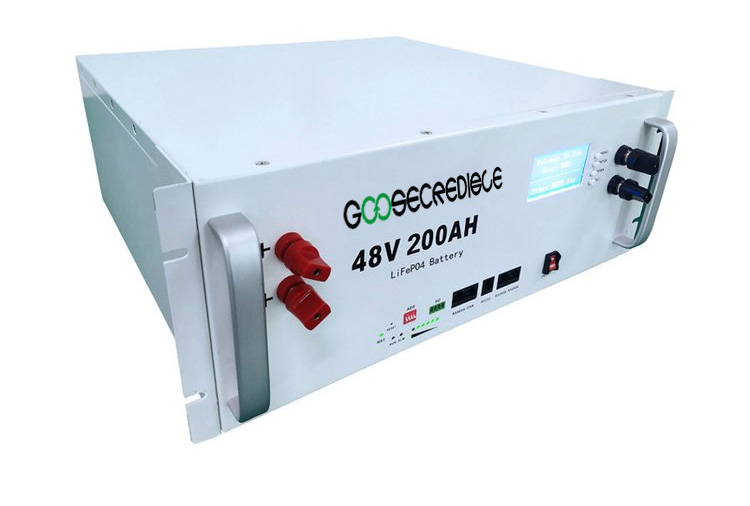Enhancing Grid Efficiency with Lithium Battery Technology: The Rise of Smart Grids
Introduction:
The energy landscape is rapidly evolving, with the demand for electricity constantly increasing. In recent years, there has been a strong push towards the development of smart grids, which utilize advanced technologies to optimize the generation, distribution, and consumption of electricity. Among the key technologies that are revolutionizing smart grids is lithium battery technology. This article explores the significance of lithium batteries in enhancing grid efficiency and the rise of smart grids.
1. The Need for Grid Efficiency:
As the demand for electricity continues to grow, it is crucial to ensure that the power grid operates efficiently. Traditional grids face challenges such as power outages, voltage fluctuations, and transmission losses. These issues not only inconvenience consumers but also result in significant economic losses. Grid efficiency is essential to meet the increasing demand for electricity while minimizing environmental impact and maximizing reliability.
2. Lithium Battery Technology:
Lithium battery technology has gained significant attention in recent years due to its high energy density, longer lifespan, and quick charging capabilities. These characteristics make lithium batteries an ideal choice for storing and releasing electrical energy efficiently. Compared to traditional lead-acid batteries, lithium batteries offer better performance, faster response times, and higher energy efficiency.
3. Role of Lithium Batteries in Smart Grids:
a) Energy Storage: Lithium batteries can store excess energy generated during off-peak hours and release it during peak demand periods. This helps balance the supply and demand of electricity, reducing strain on the grid and ensuring a stable power supply.
b) Renewable Integration: As renewable energy sources like solar and wind become more prevalent, lithium batteries can store the intermittent energy generated and smooth out the fluctuations. This enables a seamless integration of renewable energy into the grid, reducing reliance on fossil fuels and promoting sustainability.
c) Grid Stabilization: Lithium batteries, with their ability to respond quickly to fluctuations in demand and supply, play a crucial role in stabilizing the grid. They provide backup power during outages and help regulate the voltage and frequency of the grid, ensuring a reliable electricity supply.
4. Benefits of Smart Grids:
a) Grid Resilience: Smart grids equipped with lithium battery technology are more resilient to power disruptions. By leveraging energy storage and efficient distribution, smart grids can quickly identify and isolate faults, minimizing the impact on consumers.
b) Cost Savings: Smart grids optimize the distribution of electricity, reducing transmission losses and improving overall efficiency. This results in cost savings for both utilities and consumers, as well as a more affordable and reliable power supply.
c) Demand Response: Smart grids enable real-time monitoring of electricity consumption, allowing for demand response programs. Consumers can adjust their usage based on price signals, reducing peak demand and lowering electricity bills. Lithium batteries play a vital role in facilitating this demand response by storing excess energy during low-demand periods and releasing it during high-demand periods.
d) Environmental Sustainability: The integration of renewable energy sources made possible by smart grids and lithium batteries contributes to a greener and more sustainable energy sector. By reducing reliance on fossil fuels and optimizing energy usage, smart grids help mitigate the environmental impact of electricity generation.

Conclusion:
Lithium battery technology is revolutionizing the energy sector by enhancing grid efficiency and facilitating the rise of smart grids. With their high energy density, improved performance, and quick response times, lithium batteries play a crucial role in energy storage, renewable integration, and grid stabilization. Smart grids equipped with lithium batteries offer numerous benefits such as grid resilience, cost savings, demand response, and environmental sustainability. As we move towards a more sustainable and efficient energy future, the utilization of lithium battery technology in smart grids will continue to play a vital role.
-
 The High Capacity 12V 100Ah LiFePO4 Battery is the perfect solution for those looking for long-lasting power solutions. This battery is designed to provide reliable and consistent power to a wide range of applications, from electric vehicles to solar energy storage systems. One of the key benefits of this battery is its high capacity. With a capacity of 100Ah,...続きを読む
The High Capacity 12V 100Ah LiFePO4 Battery is the perfect solution for those looking for long-lasting power solutions. This battery is designed to provide reliable and consistent power to a wide range of applications, from electric vehicles to solar energy storage systems. One of the key benefits of this battery is its high capacity. With a capacity of 100Ah,...続きを読む -
 世界がよりモバイルになり、テクノロジーに依存するようになるにつれて、ポータブル電源の必要性はかつてないほど高まっています。スマートフォンから電気自動車に至るまで、リチウム電池は外出先でデバイスに電力を供給するための頼りになるソリューションとして台頭してきました。この記事では、リチウム電池の歴史、科学、未来について、そしてリチウム電池がポータブル電池の未来である理由について探っていきます。続きを読む
世界がよりモバイルになり、テクノロジーに依存するようになるにつれて、ポータブル電源の必要性はかつてないほど高まっています。スマートフォンから電気自動車に至るまで、リチウム電池は外出先でデバイスに電力を供給するための頼りになるソリューションとして台頭してきました。この記事では、リチウム電池の歴史、科学、未来について、そしてリチウム電池がポータブル電池の未来である理由について探っていきます。続きを読む -
 There has been a significant increase in the demand for portable electronic products such as smartphones, tablets, laptops, and wearable devices. These devices have become an integral part of our daily lives, providing us with convenience and connectivity on the go. One of the key components that enable these devices to function seamlessly is the lithium battery technology. Lithium...続きを読む
There has been a significant increase in the demand for portable electronic products such as smartphones, tablets, laptops, and wearable devices. These devices have become an integral part of our daily lives, providing us with convenience and connectivity on the go. One of the key components that enable these devices to function seamlessly is the lithium battery technology. Lithium...続きを読む -
 Communication base stations play a crucial role in providing reliable wireless communication services. These stations require a continuous power supply to ensure uninterrupted operations. Traditionally, lead-acid batteries have been used as the primary power source for base stations. However, recent advancements in lithium battery technology have revolutionized the industry. Lithium batteries offer numerous advantages over lead-acid batteries, including higher energy...続きを読む
Communication base stations play a crucial role in providing reliable wireless communication services. These stations require a continuous power supply to ensure uninterrupted operations. Traditionally, lead-acid batteries have been used as the primary power source for base stations. However, recent advancements in lithium battery technology have revolutionized the industry. Lithium batteries offer numerous advantages over lead-acid batteries, including higher energy...続きを読む -
 Introduction: In recent years, the demand for seamless and uninterrupted communication networks has surged, especially with the increasing reliance on mobile devices and the internet. However, ensuring reliable network coverage in remote areas or during power outages remains a challenge. In response, the implementation of lithium battery-powered base stations has emerged as a viable solution. This article delves into the...続きを読む
Introduction: In recent years, the demand for seamless and uninterrupted communication networks has surged, especially with the increasing reliance on mobile devices and the internet. However, ensuring reliable network coverage in remote areas or during power outages remains a challenge. In response, the implementation of lithium battery-powered base stations has emerged as a viable solution. This article delves into the...続きを読む -
 To charge a Lithium Iron Phosphate (LiFePO4) battery, follow these general steps: Use a charger specifically designed for LiFePO4 batteries, as this type of battery has a different charging profile than other lithium-ion batteries. Connect the charger to the battery, making sure the polarity is correct. Set the charger to the appropriate charging voltage and current for your specific battery....続きを読む
To charge a Lithium Iron Phosphate (LiFePO4) battery, follow these general steps: Use a charger specifically designed for LiFePO4 batteries, as this type of battery has a different charging profile than other lithium-ion batteries. Connect the charger to the battery, making sure the polarity is correct. Set the charger to the appropriate charging voltage and current for your specific battery....続きを読む -
 If you are looking for a reliable and high-quality starter battery supplier for your industrial equipment, there are several factors to consider before making a decision. A starter battery is a critical component of your equipment, and choosing the right supplier can help ensure that your equipment performs at optimal levels. Here are some tips on how to choose...続きを読む
If you are looking for a reliable and high-quality starter battery supplier for your industrial equipment, there are several factors to consider before making a decision. A starter battery is a critical component of your equipment, and choosing the right supplier can help ensure that your equipment performs at optimal levels. Here are some tips on how to choose...続きを読む

